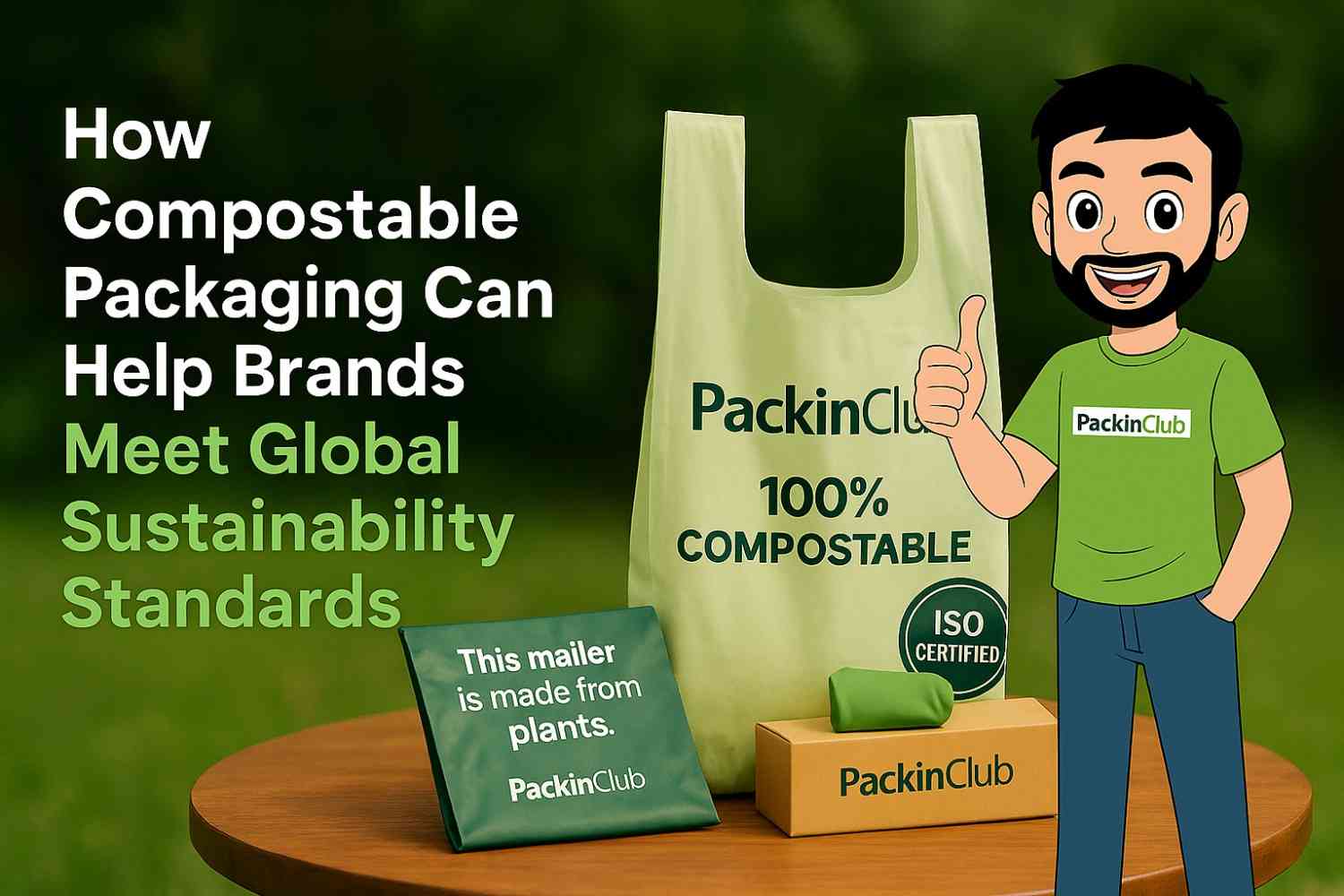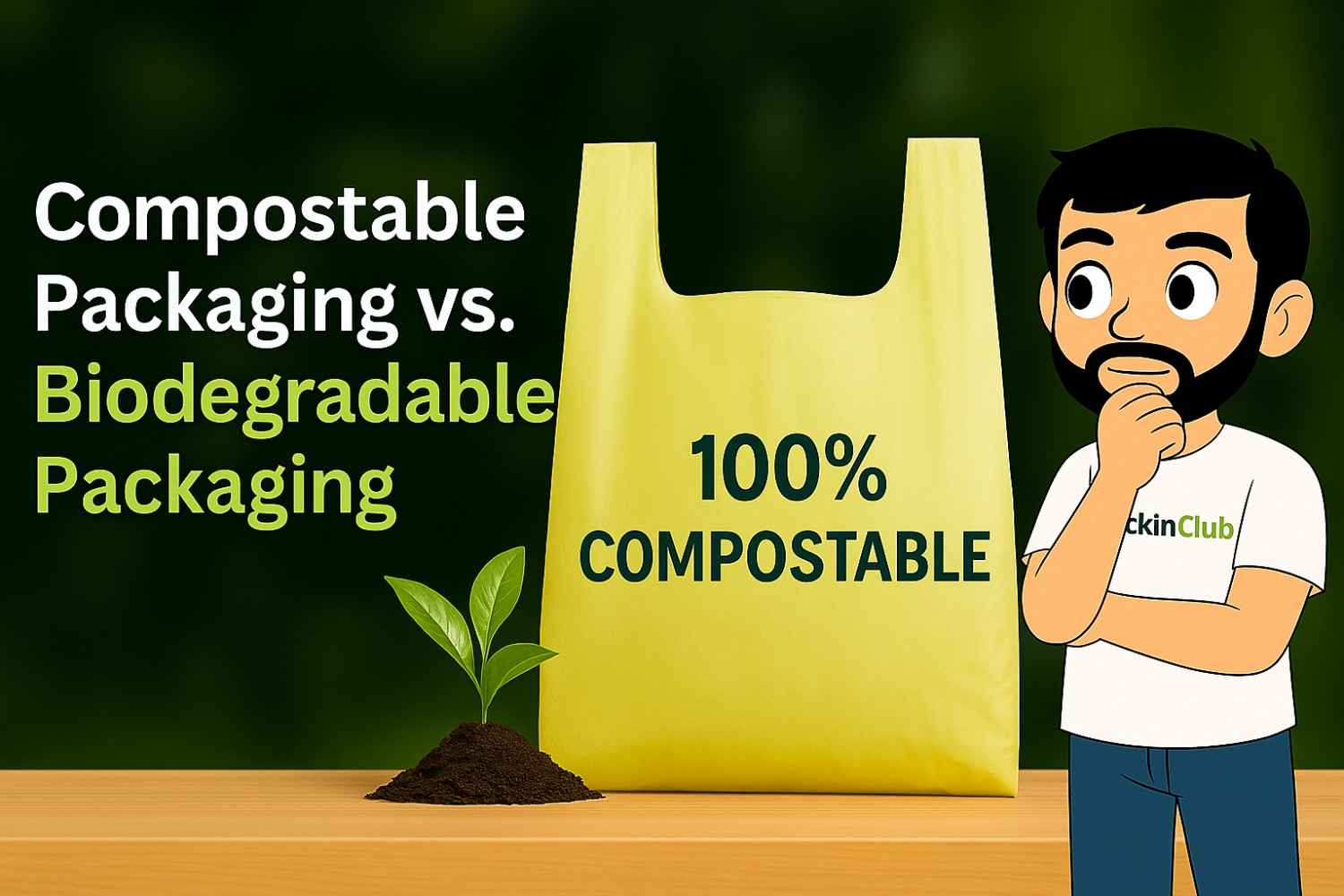Introduction
Global markets are becoming stricter with eco-regulations. For businesses exporting goods, meeting sustainability standards is crucial. Compostable packaging is an effective way to comply with these rules while enhancing your brand’s green image.
In this blog, we’ll explore how compostable packaging aligns with major international sustainability standards — and how Packin Club can support your business in meeting them.
Why Sustainability Standards Matter for Exporting Brands
Many countries are enforcing strict packaging laws to reduce plastic waste. Non-compliance can result in heavy fines, shipment delays, or product bans.
Switching to compostable packaging ensures your products align with global eco-guidelines while building consumer trust.
See Packin Club’s certified compostable solutions.
Key Sustainability Standards and How Compostable Packaging Helps
1. European Union’s Packaging Waste Directive
The EU requires businesses to minimize waste and adopt eco-friendly packaging. Compostable materials like cornstarch-based wraps and bagasse trays meet these criteria.
Explore Packin Club’s EU-compliant packaging.
2. US Federal Trade Commission (FTC) Green Guides
The FTC regulates eco-marketing claims. Certified compostable products provide verified sustainability benefits, ensuring your business avoids greenwashing risks.
Check out Packin Club’s certified range.
3. Australian Packaging Covenant (APCO)
Australia encourages businesses to reduce non-recyclable waste. Compostable packaging helps businesses meet APCO targets by minimizing landfill impact.
See how Packin Club’s packaging supports eco-goals.
4. Indian CPCB and CIPET Standards
In India, the Central Pollution Control Board (CPCB) and CIPET Testing ensure compostable products meet environmental safety standards. Using certified compostable materials helps Indian exporters comply with evolving eco-regulations.
Learn about Packin Club’s CPCB-approved solutions.
5. ISO 17088 Certification for Compostability
ISO 17088 defines compostability criteria for global packaging. Products passing these tests break down safely in compost environments without harmful residues.
Discover Packin Club’s ISO-certified products.
Benefits of Compostable Packaging for Exporters
Simplifies Compliance: Compostable packaging meets various international standards, easing the regulatory process.
Boosts Brand Image: Using eco-friendly solutions shows customers you care about the environment.
Reduces Carbon Footprint: Compostable materials decompose naturally, minimizing environmental harm.
Contact Packin Club today to explore sustainable solutions for your exports.
Conclusion
Compostable packaging is more than a trend — it’s a smart investment for businesses looking to meet global sustainability standards.
By adopting certified solutions, your brand can comply with international regulations, reduce environmental impact, and attract eco-conscious consumers.
Ready to make the switch?
Contact Packin Club now for expert guidance on compostable solutions.
Frequently Asked Questions (FAQs)
1. Will compostable packaging help me export to the EU or USA?
Yes, certified compostable packaging meets EU, FTC, and other global standards, ensuring smoother exports.
2. How does compostable packaging reduce environmental impact?
It breaks down naturally into non-toxic elements, unlike plastic that lingers in landfills.
3. Can compostable packaging handle long shipping durations?
Absolutely! Modern compostable materials offer strength and durability for safe product delivery.
4. How can I verify if my packaging meets global standards?
Look for certifications such as CPCB, CIPET, ISO 17088, and TUV Austria.
5. Does compostable packaging cost more than plastic?
While costs may vary slightly, businesses often recover these expenses through improved brand value and eco-conscious customer loyalty.





